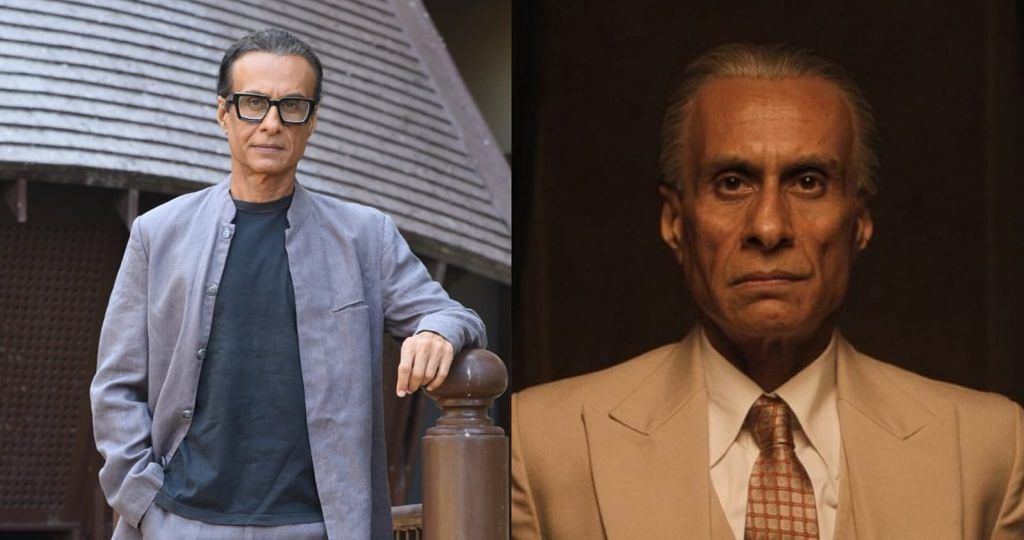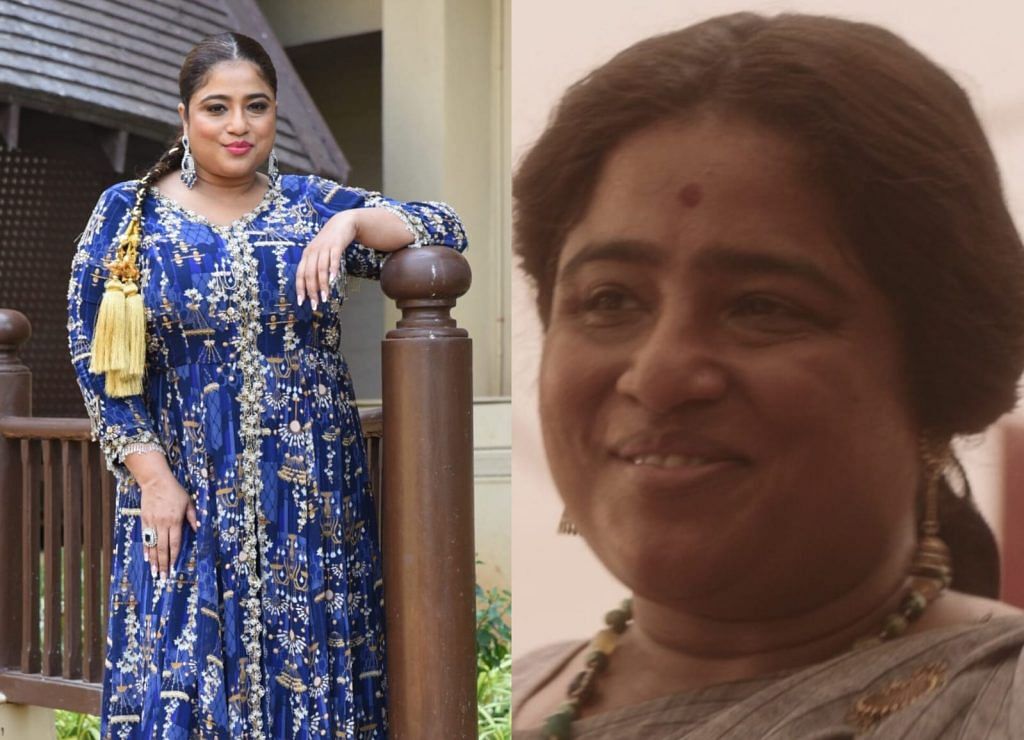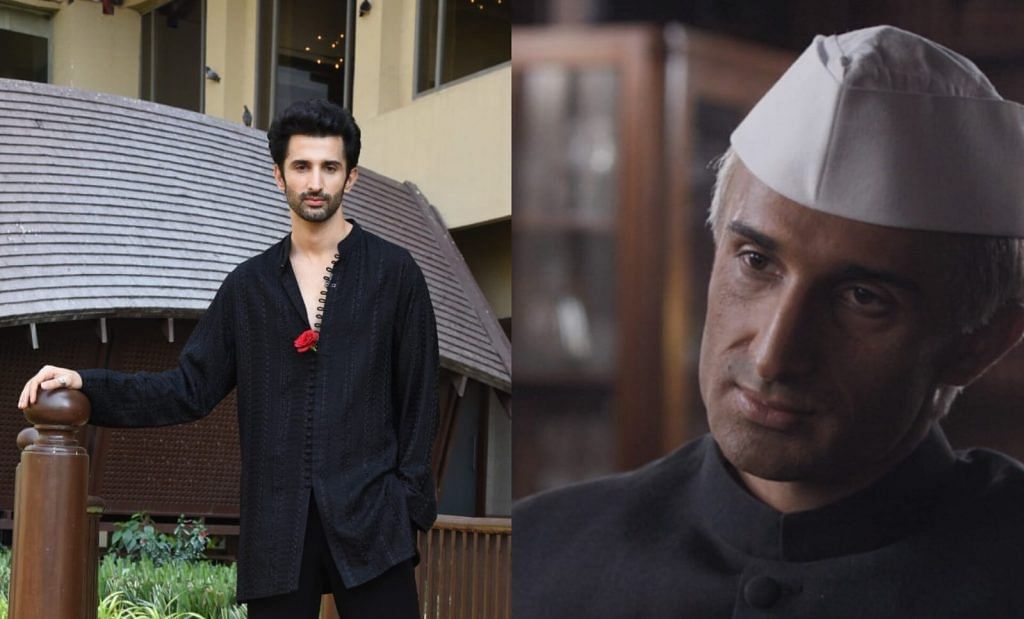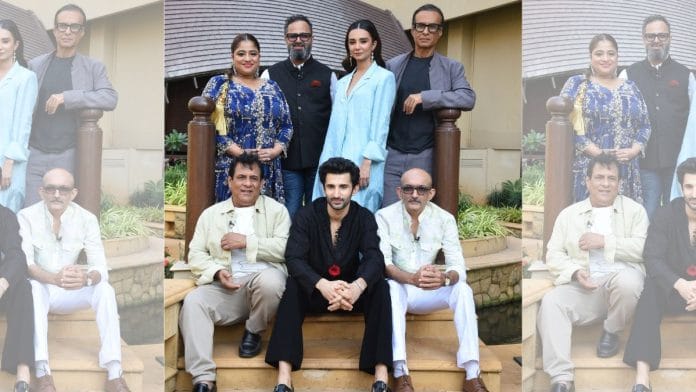New Delhi: Before the 2022 OTT series Rocket Boys mainstreamed scientists Homi Bhabha and Vikram Sarabhai, there was Jawaharlal Nehru and Muhammad Ali Jinnah. They were the original ‘rocket boys’ who launched an Independent India and Pakistan into the world.
For Nikhil Advani, director of the hit science show, revisiting Nehru and Jinnah, and the birth of India, is a natural progression. His latest web series, Freedom At Midnight, will stream on Sony Liv on 15 November.
“After Rocket Boys, we decided we have to take it one step further, in ambition, creativity, and visual scale. Freedom At Midnight is also one of my favourite books,” said the director and producer.
He doesn’t veer too far from the records of Larry Collins and Dominique Lapierre’s 1975 classic. Advani remembers the time he failed to get the rights to the book despite multiple attempts. But this changed about four years ago, and he immediately began brainstorming his magnum opus.
“To take the viewers into the same rooms as these men who have had to make these difficult decisions, I have stuck to the events that took place, and people who existed. That is not in dispute,” Advani stressed.
He’s aware of the limitations, though.
“The book is our primary source. But it would be irresponsible to have it as the only source material, because it does have a Western gaze, and it was loosely commissioned by Lord Mountbatten,” said Advani. The team consulted with historian Dr Avkash Jadhav, head and associate professor of the Department of History, St Xavier’s College, Mumbai, while writing the show.
Authenticity is the key, so much so that Arif Zakaria, who plays Jinnah, makes it a point to stumble over in the Urdu speech scenes and speak haltingly even though he is fluent in the language. After all, Jinnah was not comfortable with Urdu.

“He was a Bombay lawyer, and English was his preferred language. He is revered in Pakistan and hated here. We are trying to show how he became that persona, and it has his political ideology and his human side,” said Zakaria.
Getting into Jinnah’s skin
The teaser of Freedom At Midnight unfolds against the backdrop of the 1920 Nagpur Session of the Indian National Congress. The speaker is Sarojini Naidu (played by Malishka Mendonsa).

“This session has been called so that the party can deliberate on Mahatma Gandhi’s proposal for non-cooperation,” she says in the scene.
Freedom At Midnight has seven episodes of roughly 40 minutes each. It features Sidhant Gupta as Jawaharlal Nehru, Chirag Vohra as Gandhi, Rajendra Chawla as Sardar Vallabhbhai Patel, Ira Dubey as Fatima Jinnah, and Anuvab Pal as Huseyn Shaheed Suhrawardy.

“It was fascinating to get into the character and mindset of Jinnah. I do not have to agree with his ideology, and it’s very different from mine. But I did get to see his many characteristics, how he spoke, and how much his sister Fatima’s observations mattered to him,” said Zakaria.
Advani uses elements from sitcoms to create lighter moments between characters. In the very first episode, for instance, Congress and Muslim League members are stuck in a painfully slow elevator and take jabs at both each other and the elevator. In another, Sardar Patel and Nehru’s bickering turns into laughter after they realise they have lost their way in the vast residence of Viceroy Wavell.
“I thought emotional blackmail was Gandhi’s prerogative,” Nehru told Patel in the second episode because the latter had pushed him for a meeting with the viceroy. This banter establishes their bond, both personal and political.
These intimate conversations form the heart of the show, revealing all the small moments that eventually culminated in the Partition.
“I am hoping that, after 15 November, people will talk about the 450 people put together on this show, and I hope that the book, which has been out of print, goes back to print again,” Advani said.
(Edited by Zoya Bhatti)






